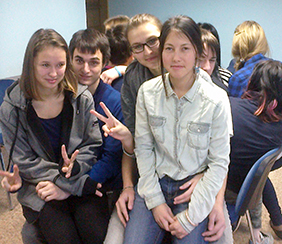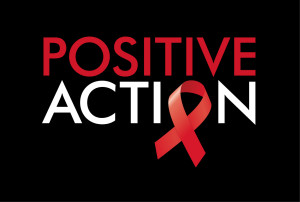
ST. PETERSBURG. RVF has completed a pilot program to prevent HIV and sexually transmitted infections (STIs) in young adults in the city’s vocational schools, colleges, institutes and youth communal organizations and reduce the social stigma associated with these infections within this vulnerable population. This St. Petersburg-based program is to be a replicable model and is made possible by funding from ViiV Healthcare’s Positive Action Programme.

The program focused on the student population of the city’s vocational schools, as well as incarcerated youth at correctional facilities for minors. These demographic groups lack the benefit of instruction in healthy lifestyles, including the prevention of HIV.
St. Petersburg has been severely affected by the HIV epidemic in the Russian Federation. In 2011, the overall incidence rate of HIV in St. Petersburg was 61.5 per 100,000, one of the 10 highest rates in the country. Even though much progress has been made in preventing the transmission of infection from mother to baby, the risk of infection among adolescents remains a serious public health concern.
The program employed peer education, a proven concept in which adolescents function as educators. Studies have shown peer-led education to be very effective in reducing HIV incidence rates. The program used two major approaches:
- Primary prevention of HIV infection through peer-led education, including education to remove the social stigma associated with HIV and STIs.
- Prevention of HIV infection and STIs through voluntary, confidential screening and referral for treatment, which is necessary to interrupt the chain of transmission.
Primary Prevention:
RVF and its partners developed a curricula on HIV and Risk Behavior Prevention. This curricula was approved by the Department of Education and has been introduced into curricula for pedagogical and nursing colleges and youth voluntary organizations in St. Petersburg. It is also now recommended for city vocational schools. A total of 66 primary training seminars were held with over 1,500 participating students and adolescents from 4 vocational schools and colleges, 3 universities and 2 youth communal organizations in St. Petersburg.
Groups of peer consultants made up of youth and teachers were also formed and trained: a total of 19 “Training of Trainor” training sessions on HIV prevention were arranged for students of 4 vocational schools and colleges, 3 universities and 1 youth communal organization. 81 fully trained peer educators and 46 young moderators are now educating their peers in HIV and STI prevention.
An especially encouraging development was the expansion of the program to the St. Petersburg and Leningradskaya Oblast Youth Detention Center “Kolpino.” To date 44 juvenile inmates have been fully trained on HIV prevention.
The curricula was so well-received that it is now being taught in 15 other regions of the Russian Federation as well as in other regional countries including Armenia, Belarus, and Ukraine.
Screening and Prevention
Voluntary screening for HIV commenced in October 2014 and continued through May 2015. Free, anonymous screening was available at a major city hospital, as well as a mobile station. The mobile station provided information, confidential testing and counseling services focused on the prevention of HIV and other STIs and served students at St. Petersburg State Technology University, St. Petersburg State Institute for Psychology and Social Work and St. Petersburg Pedagogical College No. 1. To date 982 individuals have been screened for HIV and 410 individuals for HCV. All screening results were negative. Over 2,000 pre- and post-testing counseling sessions were held.
At Kolpino Youth Detention Center, all 54 male juvenile detainees were offered counseling services for the prevention of HIV and other STIs and encouraged to be screened for HIV in the detention center’s lab. Screening was offered on a strictly voluntary and anonymous basis. To date 44 juveniles have been screened for HIV. One adolescent was confirmed to be HIV+. He is now being treated with antiretroviral drugs.
This life-saving work would not have been possible without the funding from ViiV Healthcare’s Positive Action program and the partnership of two other organizations: Diakonia, a faith-based organization experienced in primary HIV prevention through education, and the St. Petersburg Department of Education. The combining the resources of NGO and governmental partners has already facilitated the creation of a replicable model that is already being implemented in cities throughout Russia and beyond.

This program was made possible by the support of ViiV Healthcare’s Positive Action programme.